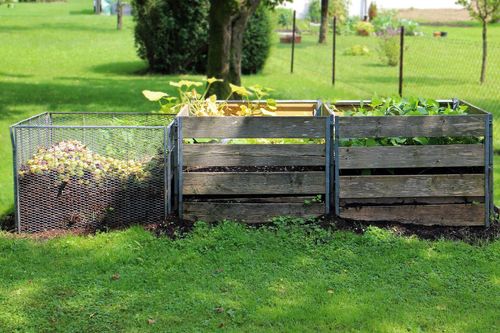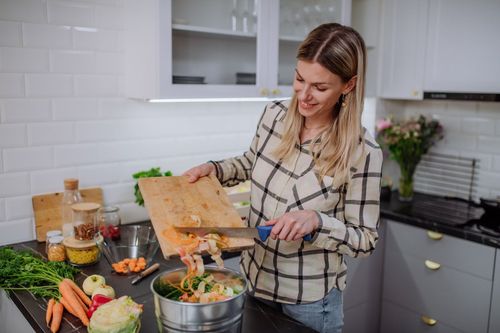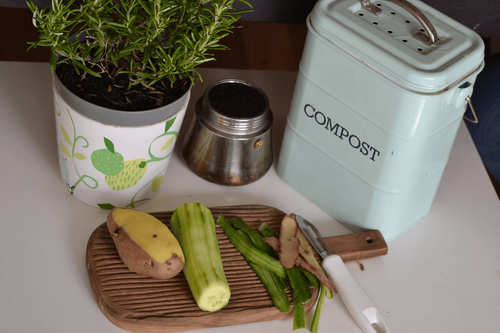Reduce, Reuse, Compost: A Beginner's Guide to Getting Started with Composting
8 minute read
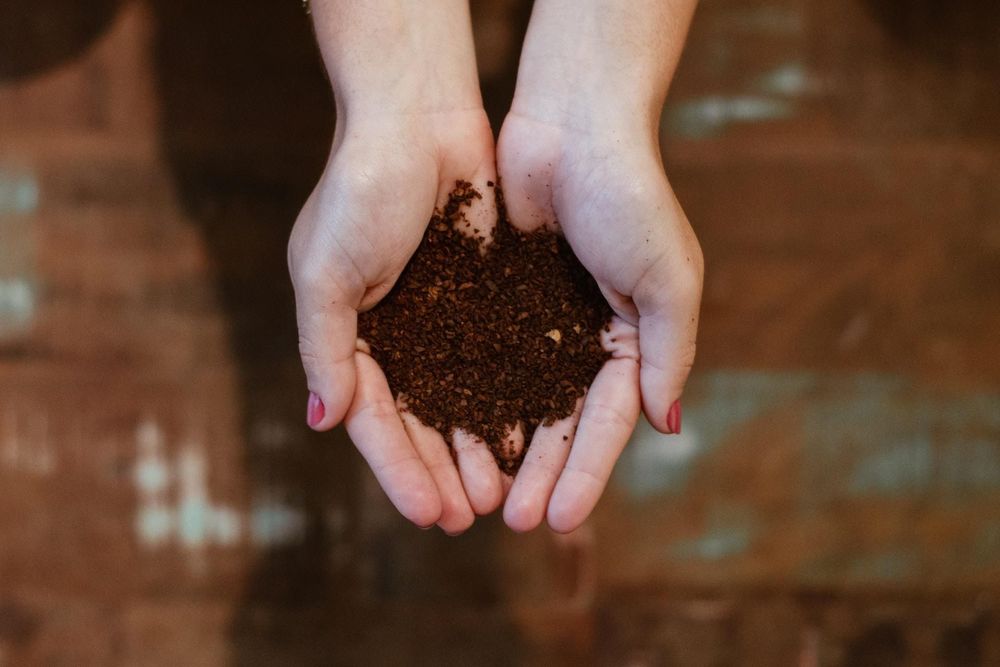
So, you've decided to take your first steps into the incredible world of composting!
Welcome, you're surely in for a beautiful treat like no other.
More and more people these days are seeing the joys, highlights, and benefits of composting at home, especially those in our tech-dominated world who are looking for a beautiful and engaging way to reconnect with nature and the outside world.
In fact, statistics show that nearly 30% of all households compost their waste, yet 67% of households would be willing to do it if it was easier.
Well, we hear you, which is why we're here to show you just how easy and accessible it really is. This is your complete beginner's guide to transforming kitchen scraps and yard waste and transforming them into a nutrient-rich soil enhancer that can supercharge your garden.
That's the power of composting.
Let's get into it.
The Basics of Composting
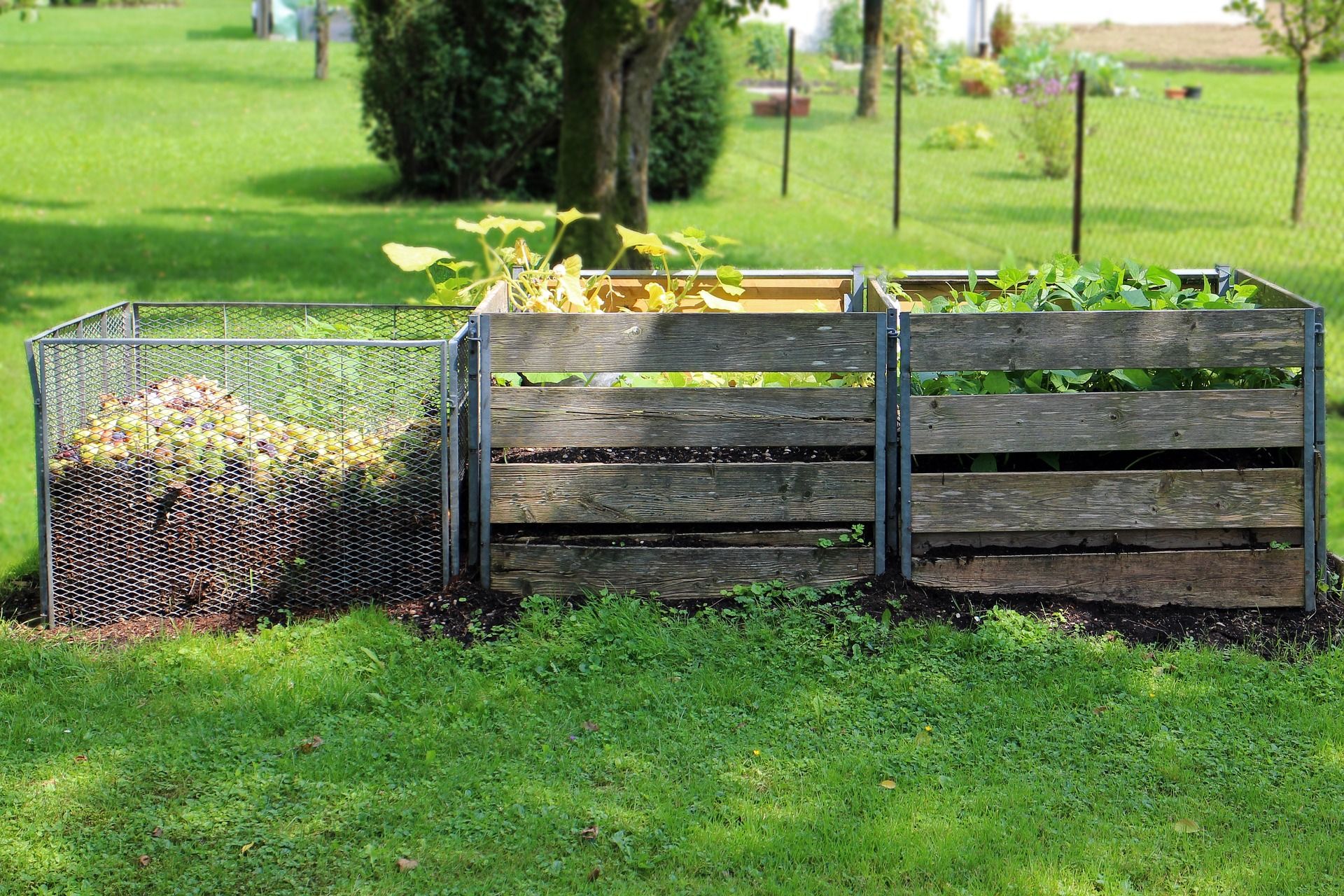
Composting is a natural process where organic materials decompose into a rich, earthy substance known as compost.
Everything grows in compost, and whether you have a garden, veg patch, or house plants, it's the stuff that keeps everything alive and well.
Interestingly, this process is facilitated by microbes, worms, and other organisms, which break down the organic waste into nutrient-dense humus, usually full of substances like nitrogen.
So you put in organic waste, the bugs, germs, and bacteria eat it up and process it, essentially poop it out, and the new plants use the nutrients to grow tall and strong.
It's the cycle of life!
This is what happens in forests every year. Old leaves and branches fall to the ground and rot down over time with all their lovely nutrients and goodness seeping into the soil, and thus, the new plants have everything they need to thrive.
What are the Benefits of Composting?
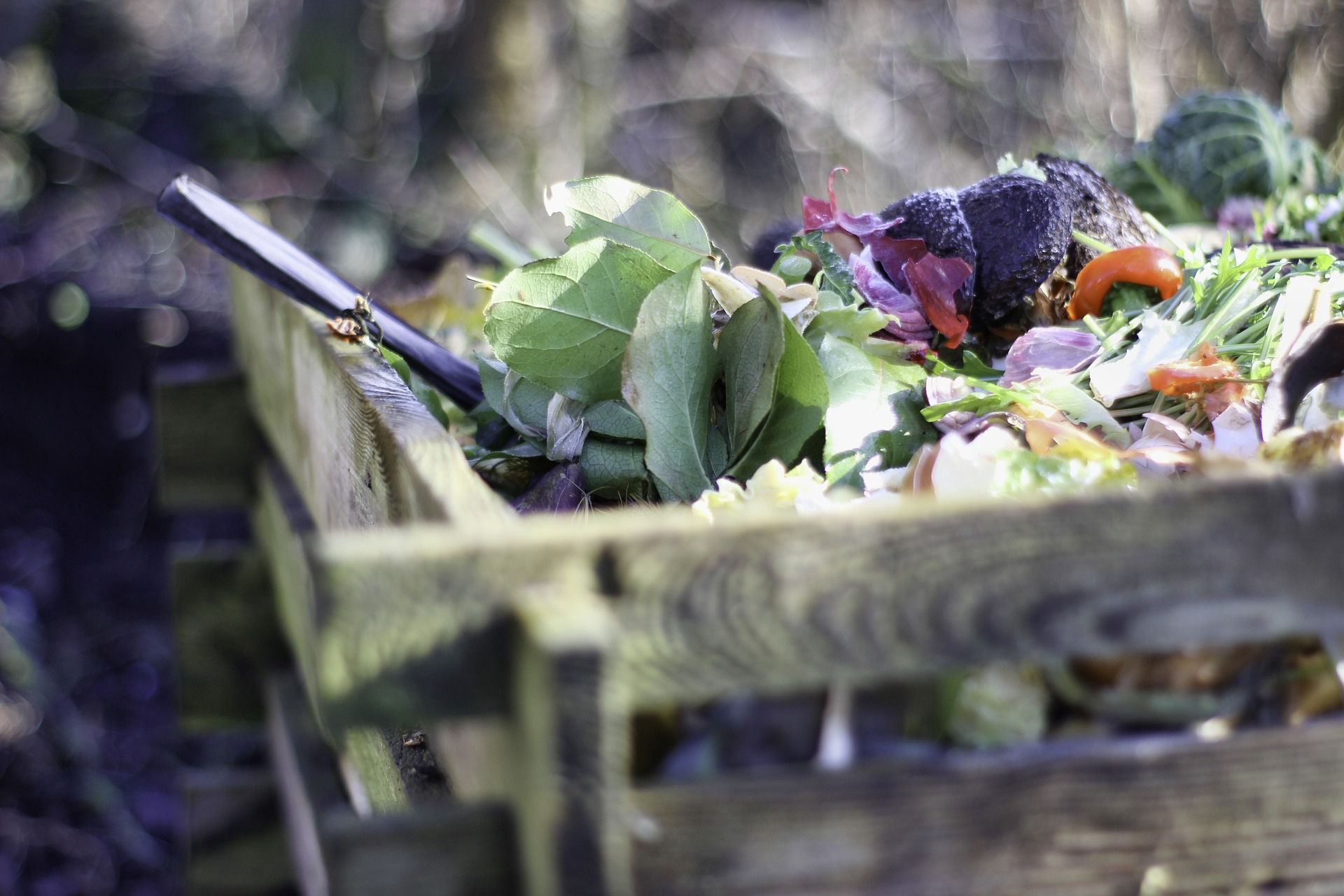
So we know that composting is good and gives you a ton of benefits, but let's actually take some time to look at these in a little more detail. Especially since these are all the reasons why you should be getting excited about stepping into the world of composting!
Let's jump straight in.
Environmental Benefits
Composting is ecological alchemy.
You take kitchen, garden, and other natural waste and turn it into nutrient-dense soil. This compost can be so pure and natural that it effectively reduces your need for synthetic fertilizers and pesticides.
There are so many benefits that come with this. Reducing the chemicals used in your garden not only helps to combat chemical runoff and pollution in your home but also helps to combat climate change on a global scale since it cuts down on methane emissions, a potent greenhouse gas that would otherwise be produced if the same waste ended up in a landfill.
Furthermore, good, decent compost improves soil structure and promotes erosion control, thereby maintaining the health of our land and waterways.
That's a lot of wins for the planet!
Personal Benefits
We love doing our bit to save the world around our homes, but composting comes with many reasons to be a bit selfish.
Firstly, the rich, organic compost you produce acts as a natural soil conditioner, amplifying the fertility of your garden and boosting plant growth. Whatever you're planting, you can expect bigger, better, and more beautiful growth than any plants grown in chemical-rich store-bought soil.
That, of course, means healthier, more robust plants and a bountiful harvest if you're growing your own veggies. And then there's the cost savings of not buying commercial fertilizers since you're only using the waste you'd already produce.
On top of this, composting is known for a whole host of other benefits, including:
- Promotes biodiversity: Composting attracts a variety of beneficial microorganisms, insects, and worms to your garden. These living creatures break down organic material into nutrient-rich compost and enhance your garden's biodiversity, contributing to a healthier ecosystem overall.
- Reduces water use: Well-composted soil has better water retention capability. This means your plants will require less watering, which is not only good news for your water bill but also a significant step towards water conservation.
- Controls pests and diseases naturally: The organic compost you produce contains beneficial microbes that can help suppress plant diseases and pests. This reduces the need for chemical pesticides and allows you to grow healthier plants in a natural and sustainable way.
- Teaches sustainable living: Engaging in composting is a hands-on way to teach kids and adults alike about recycling, ecology, and sustainable living. It instills a sense of environmental awareness and responsibility, making it a valuable practice far beyond its gardening benefits.
Getting started with composting is a win-win, offering tangible benefits to you and a helping hand to Mother Earth. Apart from funky smells from time to time (which can be avoided with proper planning), there are pretty much no downsides!
How to Get Started with Composting
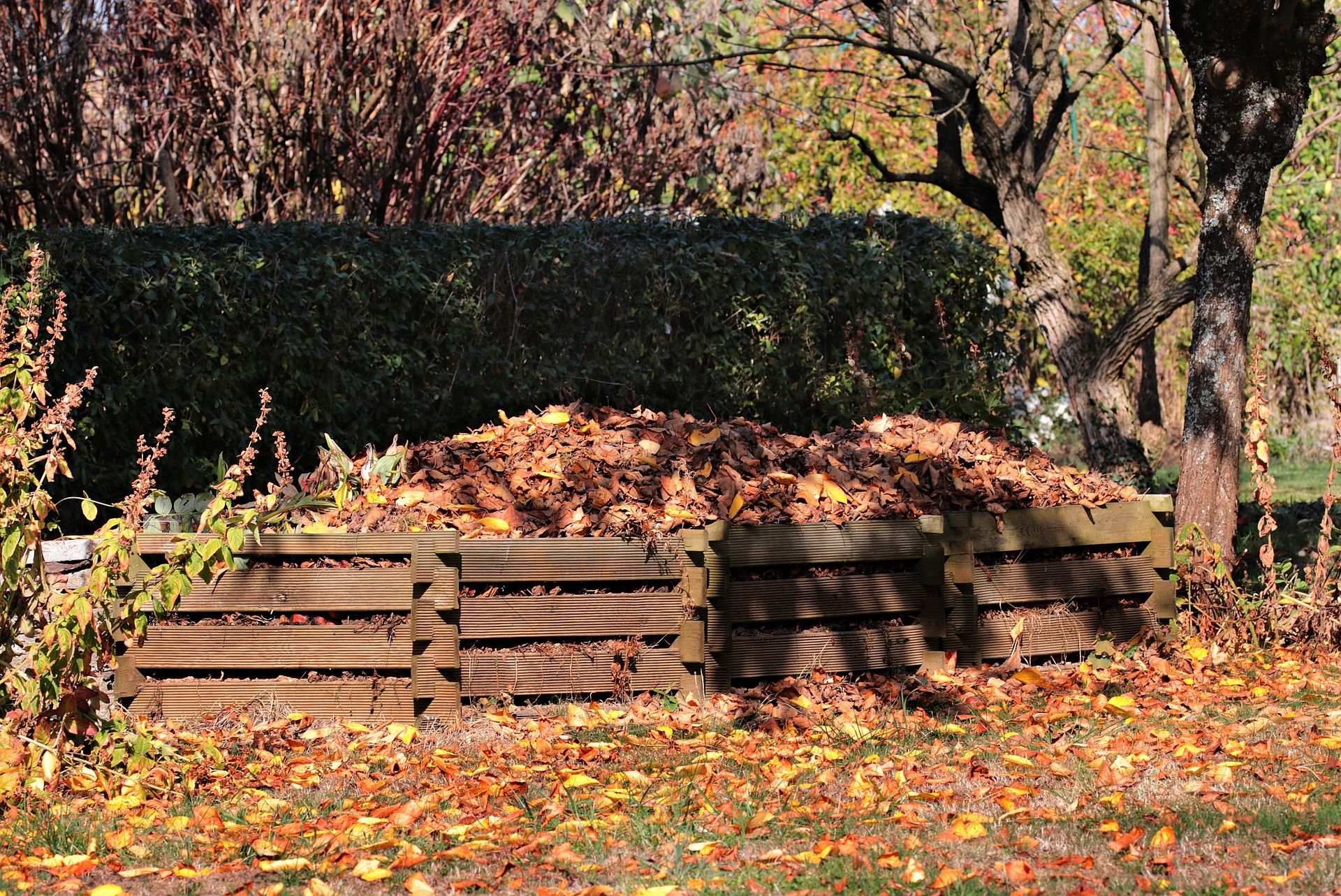
Okay, with all the theory out of the way, let's get actionable.
If you're part of the 67% who would love to get into composting if it was easier, you're in luck - getting started in composting is incredibly straightforward.
To get started, you'll need a few key tools, including:
- A compost bin or designated compost pile area
- Carbon-rich "brown" materials (like dried leaves, twigs, or newspaper)
- Nitrogen-rich "green" materials (such as vegetable scraps, coffee grounds, or fresh grass clippings).
- A garden fork or shovel
And that's really it. That's all the basics you'll need. There are more options out there that can help you get different results, but for now, the essentials are enough. If you want to go deeper into the tools, you can check out our comprehensive guide here.
Once you've gathered your materials, follow these steps to start your compost pile:
- Choose a location: Select a dry, shaded spot near a water source for your compost pile or bin.
- Start your compost pile: Layer your brown and green materials. Start with a layer of browns for the base, then add a layer of greens. Alternate layers of greens and browns until the compost pile is about 3 feet high.
- Turn the compost pile: Use your garden fork or shovel every few weeks to turn the compost pile. This helps aerate the pile and speeds up the composting process.
- Wait and watch: Over the next few months, your compost pile will turn into a rich, dark, soil-like material. You can use this compost in your garden to enrich your soil and feed your plants.
Depending on the type of food and material you're composting, it can take anywhere from two weeks to two years for everything to break down completely. If everything is nicely broken down, small, and fresh, it will happen quickly.
On the other hand, if you're trying to compost large, hard chunks of wood or tree, this will take much longer.
A Note on Setting Up Your Heap
We know what you're thinking - if it takes a long time for your natural product to break down, how are you supposed to use it in your garden?
Well, quite simply, the trick is to ensure your compost pile or bin is accessible from two sides. You then build your pile from one side to the other and keep adding to it over time.
When you need to access compost, you simply head over to the side that's been composting the longest and work your way along, replacing the used bit with new material to compost.
And remember, you're not going to need compost all year around, just during the mulching months, so there's plenty of time to wait and let nature work its own magic.
And That's it! You're well on your way to composting at home.
Remember, composting is more of an art than a science, so don't worry if things aren't perfect right away. Experiment with different materials and ratios to find what works best for you and your garden.
Composting Mistakes to Avoid
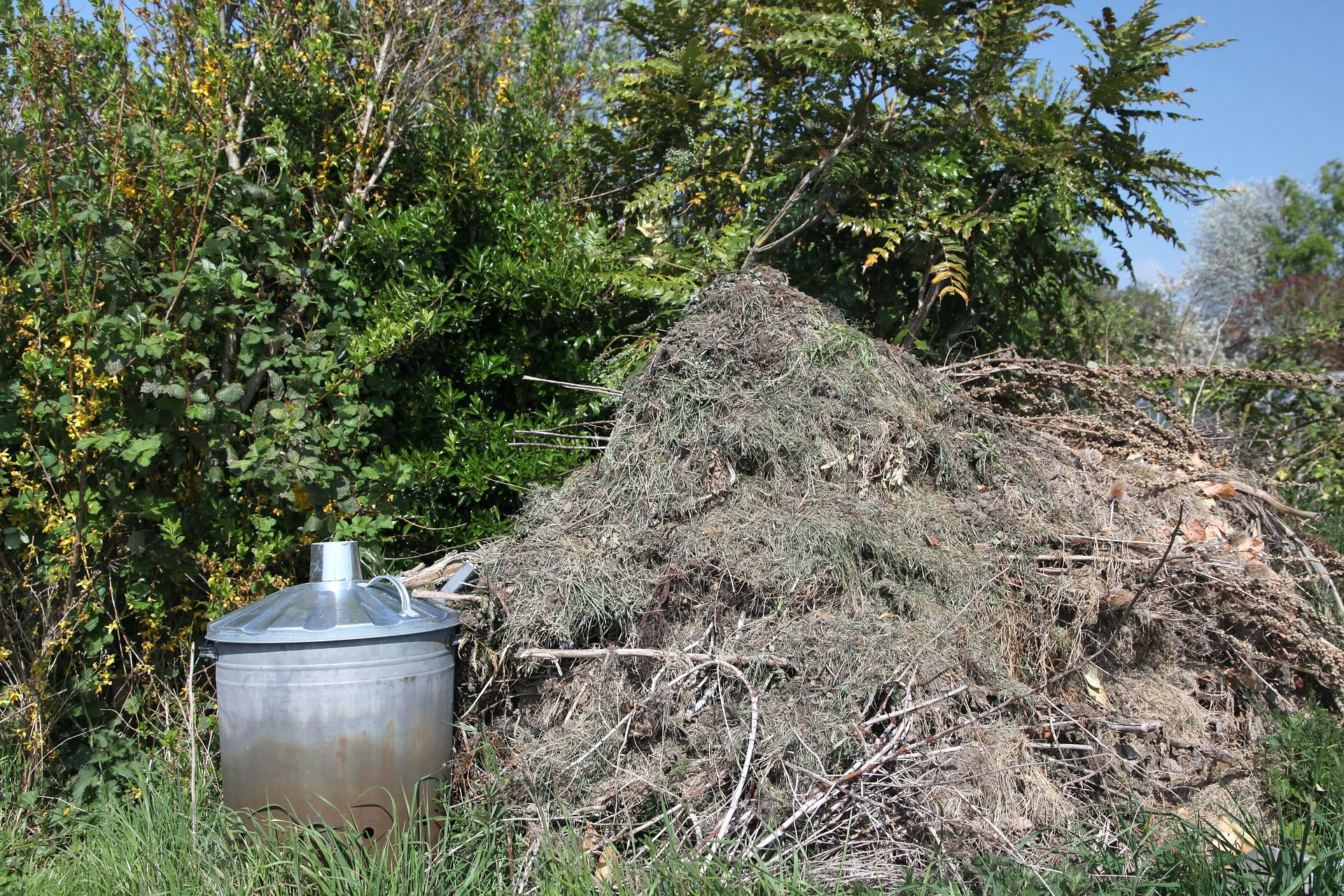
When you're starting with composting, it's common to encounter a few hiccups. Especially when you're in the process of learning how to make it work for you.
That said, here are some common composting mistakes to watch out for and hopefully avoid:
- Too much of one material: A healthy compost pile needs a balance of brown and green materials. Too much of one can slow down the composting process, so aim for a roughly equal mix. Never try to fill one section of your heap with just one thing. Break everything down as much as possible, and while keeping it compact, also mix fast composting stuff with the harder stuff. You'll get much faster, much better results!
- Not turning the compost: Regularly turning your compost pile helps to aerate it and speed up composting. If neglected, your compost can become stale and smelly. That's why we have a fork or shovel nearby!
- Adding the wrong materials: Not all organic material is good for compost. Avoid composting dairy, meat, diseased plants, and pet waste, as these can attract pests and create a foul smell.
- Expecting fast results: Composting is a slow process, and it's normal for it to take a few months. Be patient and let nature do its work.
By avoiding these mistakes, you're well on creating your own nutrient-rich compost.
Composting Tips and Tricks
And finally, while it's certainly fun to learn everything on your own, you can instantly boost your knowledge and skill with these expert tips:
- Shred your materials: By shredding leaves and other larger items, you will increase the surface area of the material and speed up decomposition.
- Keep it moist: A compost pile needs moisture to break down properly. Water regularly, if needed, or cover your pile with a tarp if it's too wet.
- Layering is key: For best results, alternate between layers of brown and green materials.
- Composting bins: If you want to keep your compost contained and neatly organized, consider investing in a compost bin. Some are even designed to rotate, making turning your compost easier.
- Choose the right location: Place your compost pile in a well-drained area with good air circulation. Avoid placing it too close to your house or any structures.
- Add finished compost to your garden: Once your compost is ready, use it as a natural fertilizer for your garden and plants.
Conclusion
And there we have it: you now know everything you need to know about composting. You're certainly no longer a beginner at this post.
Remember, composting is a simple and eco-friendly way to reduce waste and create nutrient-rich soil for your plants, and it's a life-long skill that can serve you and your garden for many years to come!
It may take some time and patience, but the end result will be worth it.
Happy composting!
Don't forget to check out the rest of our articles for advice, how-to guides, and everything you need to know as a beginner!
